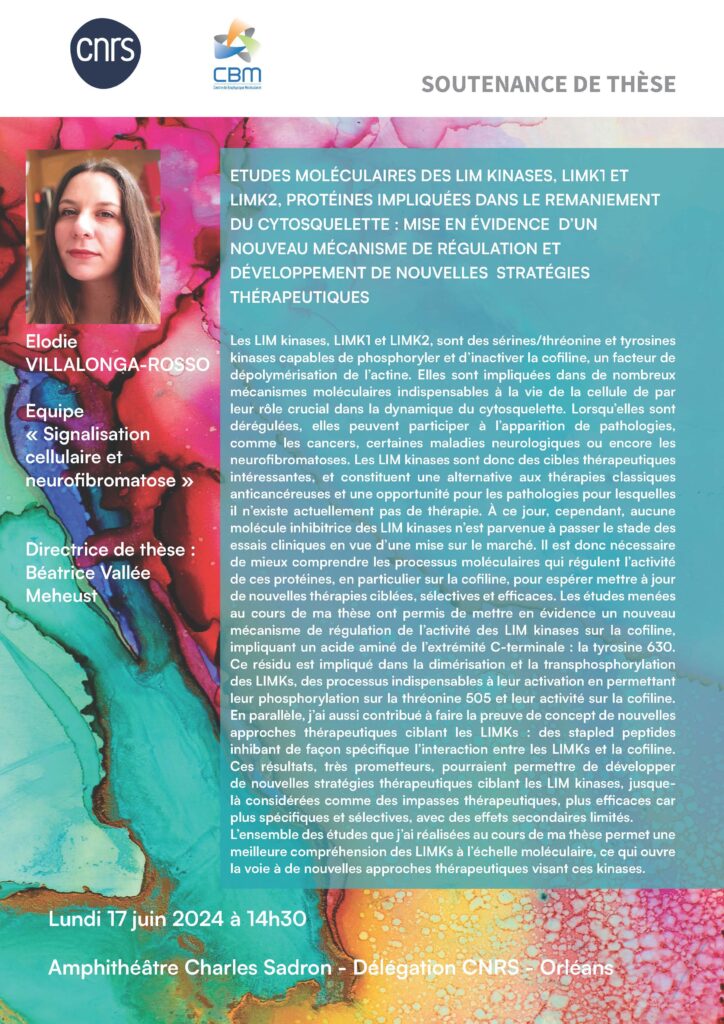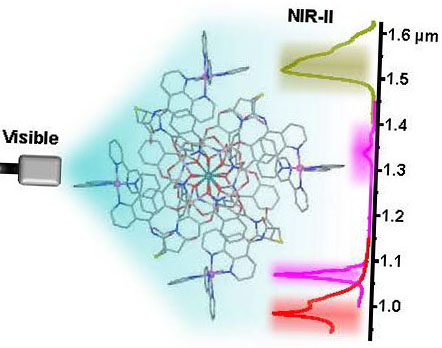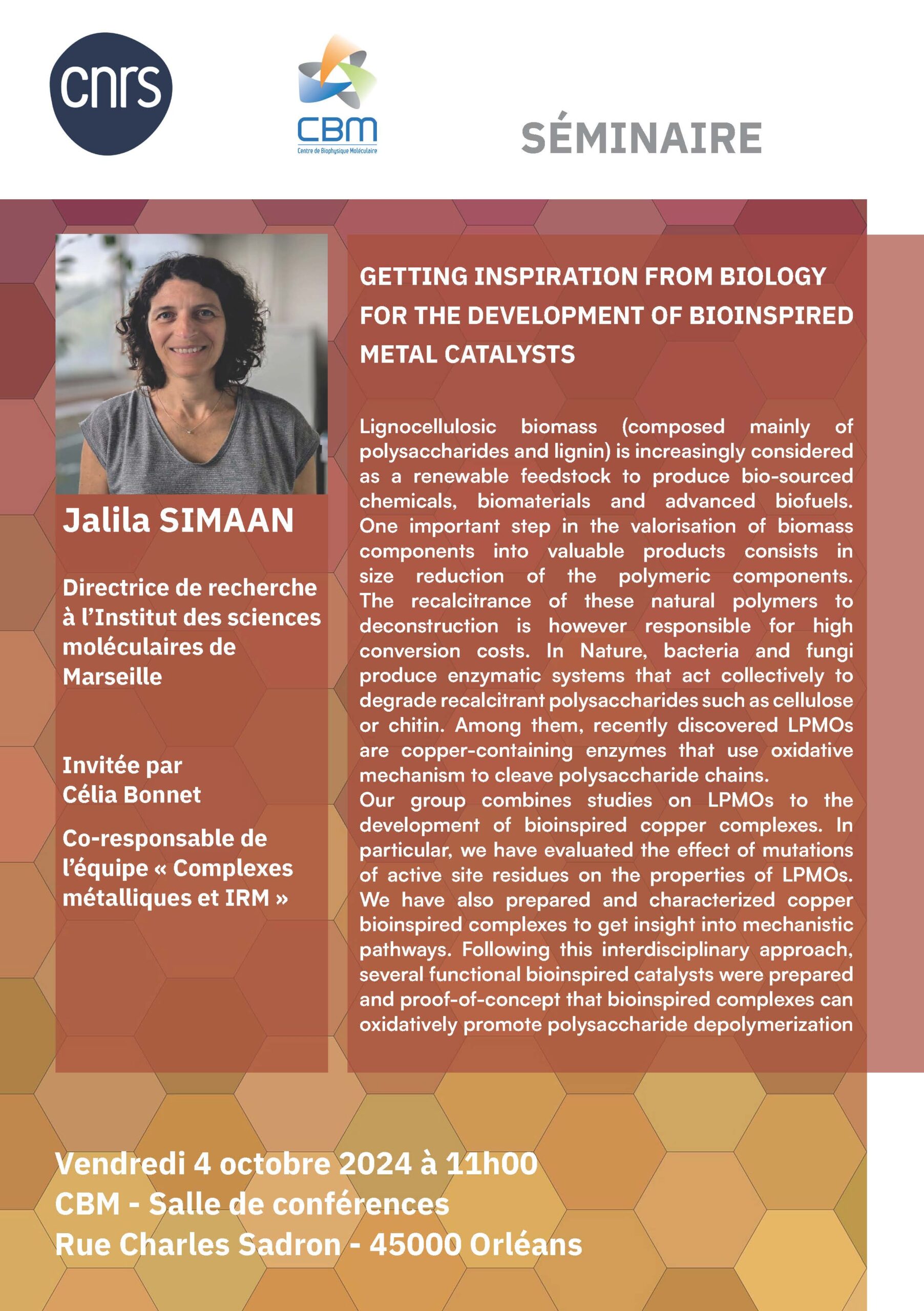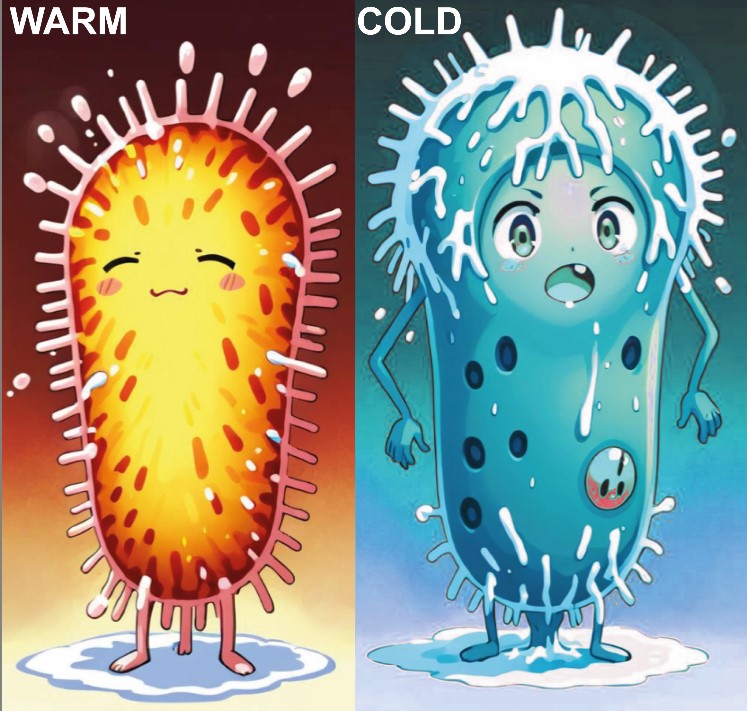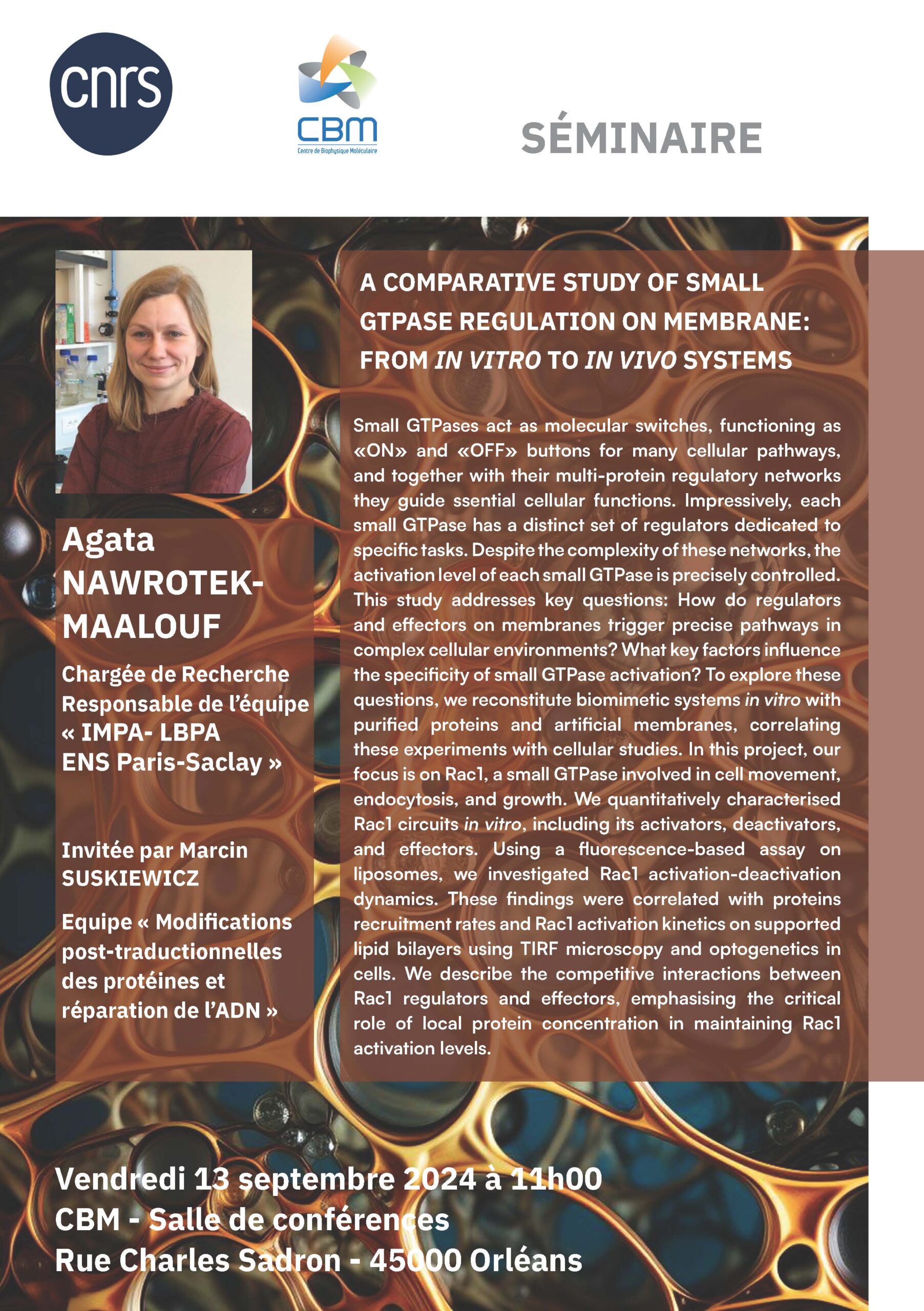Cold shock is a common stress for bacterial pathogens inhabiting warm-blooded hosts. It occurs upon abrupt release from the host into the comparatively cold environment. Understanding how pathogens cope with cold shock is crucial to define how they survive on contaminated surfaces and spread to new hosts.
The‘RNA remodeling’ team and I2BC colleagues discovered that transcription termination factor Rho is a crucial player in the bacterial cold shock response (CSR), challenging the prevalent view that the CSR is mostly a posttranscriptional program. Temperature-sensing mRNA switches either allow (at 37°C) or prevent (at 15°C) Rho-dependent termination of the transcription of cold shock genes. During cold acclimation, the cold shock proteins accumulate until they bind to their mRNAs and switch them back into conformations prone to Rho action, thereby providing negative feedback control of their own expression. This regulatory loop works alongside the established posttanscriptional mechanisms to ensure tight and quick regulation of the cold shock genes.
This discovery published in the journal Molecular Cell illustrates the complexity of the bacterial stress responses and highlights Rho as a promising therapeutic target. It was reported by CNRS Chimie on its website.
Référence :
Rho-dependent transcriptional switches regulate the bacterial response to cold shock
Mildred Delaleau, Nara Figueroa-Bossi, Thuy Duong Do, Patricia Kerboriou, Eric Eveno, Lionello Bossi, & Marc Boudvillain*
Molecular Cell https://doi.org/10.1016/jmolcel.2024.07.034
